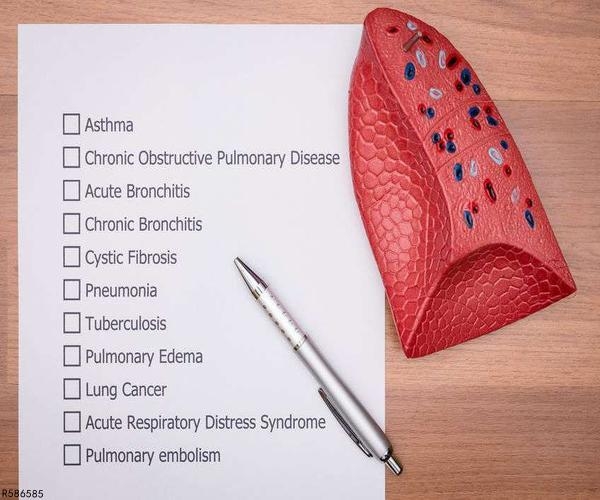导读近期在线发表于《柳叶刀》的一项研究表明,术前输血能降低镰状细胞病患者围手术期并发症的发生。
近期在线发表于《柳叶刀》的一项研究表明,术前输血能降低镰状细胞病患者围手术期并发症的发生。
目前对于术前输血能否给镰状细胞病患者带来获益尚无统一的意见。由于围手术期并发症常见于镰状细胞患者,英国Guy’s and St Thomas医院的Jo Howard博士等评估选择术前输血患者的其围手术期并发症发生率。
该前瞻性多中心随机对照研究在四个国家22家医院进行开展。入组的受试者为年龄至少为1岁、镰状细胞贫血(SS)或镰状β°-地中海贫血(Sβ°)、并且准备进行低危(如腹股沟疝修补术、腺样体切除术)或中危(如胆囊切除术、关节置换术)手术。排除符合上述入组标准的患者被随机分为两组,一组在术前不进行输血,另一组在术前10天内进行输血。研究的主要结局是在随机化和术后30天出现重要并发症的患者所占的比例。采用意向治疗对研究结果进行分析。
研究纳入了70名患者,最终分析了67名患者数据,其中33名未进行术前输血,34名在术前进行了输血。纳入分析的67名患者中,65名患者的血红蛋白为SS亚型,54名患者拟进行中危手术。术前未输血组中13人发生了临床重要并发症,而术前输血组中仅5人,所占比例分别为39%和15%。在出现并发症患者中,两组分别有10人(30%)和1人(3%)出现严重不良反应。没有调整的临床重要并发症的比值比为3.8%,95%可信区间为1.2~12.2。这11名出现严重不良反应的患者中有10人(91%)出现了急性胸痛综合征,其中9人术前未输血,1人进行术前输血。在两组间,研究者们并未发现存在住院天数和再次入院率的差别。
研究结果指出,在镰状细胞病患者中进行术前输血能降低患者围手术期并发症的发生率,特别是能改善拟进行低危和中危手术的血红蛋白SS亚型的患者在围手术期并发症的产生。
The Transfusion Alternatives Preoperatively in Sickle Cell Disease (TAPS) study: a randomised, controlled, multicentre clinical trial.
BACKGROUND: No consensus exists on whether preoperative blood transfusions are beneficial in patients with sickle-cell disease. We assessed whether perioperative complication rates would be altered by preoperative transfusion. METHODS: We did a multicentre, randomised trial. Eligible patients were aged at least 1 year, had haemoglobin SS or Sβ(0)thalassaemia sickle-cell-disease subtypes, and were scheduled for low-risk or medium-risk operations. Patients were randomly assigned no transfusion or transfusion no more than 10 days before surgery. The primary outcome was the proportion of clinically important complications between randomisation and 30 days after surgery. Analysis was by intention to treat. FINDINGS: 67 (96%) of 70 enrolled patients-33 no preoperative transfusion and 34 preoperative transfusion-were assessed. 65 (97%) of 67 patients had the haemoglobin SS subtype and 54 (81%) were scheduled to undergo medium-risk surgery. 13 (39%) of 33 patients in the no-preoperative-transfusion group had clinically important complications, compared with five (15%) in the preoperative-transfusion group (p=0·023). Of these, 10 (30%) and one (3%), respectively, had serious adverse events. The unadjusted odds ratio of clinically important complications was 3·8 (95% CI 1·2-12·2, p=0·027). 10 (91%) of 11 serious adverse events were acute chest syndrome (nine in the no-preoperative-transfusion group and one in the preoperative-transfusion group). Duration of hospital stay and readmission rates did not differ between study groups. INTERPRETATION: Preoperative transfusion was associated with decreased perioperative complications in patients with sickle-cell disease in this trial. This approach could, therefore, be beneficial for patients with the haemoglobin SS subtype who are scheduled to undergo low-risk and medium-risk surgeries. FUNDING: NHS Blood and Transplant.
版权声明:
本站所注明来源为"爱爱医"的文章,版权归作者与本站共同所有,非经授权不得转载。
本站所有转载文章系出于传递更多信息之目的,且明确注明来源和作者,如果您认为我们的转载侵犯了您的权益,请及时通过电话(400-626-9910)或邮箱(zlzs@120.net)通知我们,我们将第一时间处理,感谢。
本站所注明来源为"爱爱医"的文章,版权归作者与本站共同所有,非经授权不得转载。
本站所有转载文章系出于传递更多信息之目的,且明确注明来源和作者,如果您认为我们的转载侵犯了您的权益,请及时通过电话(400-626-9910)或邮箱(zlzs@120.net)通知我们,我们将第一时间处理,感谢。





